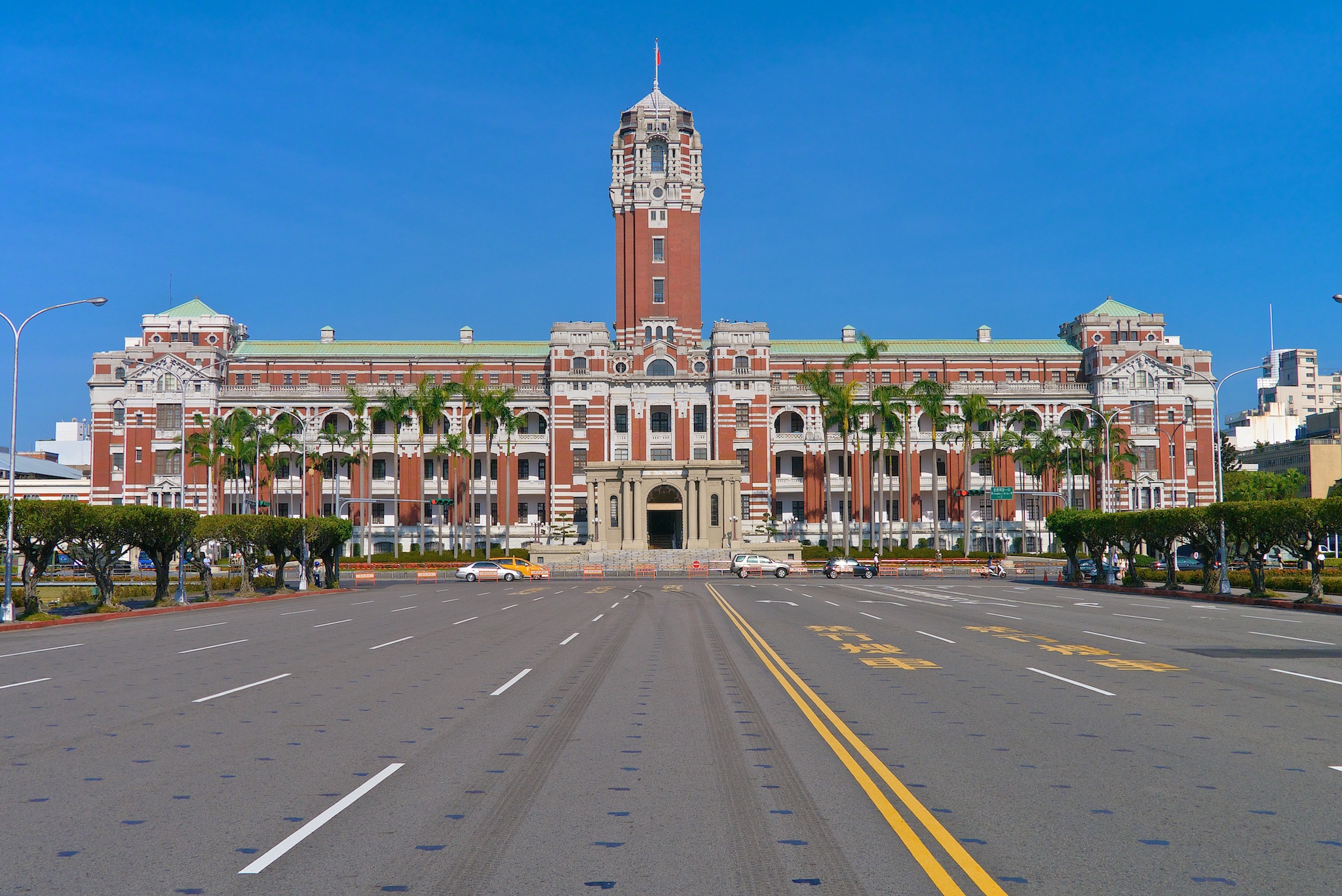|
Democratic Progressive Party (Taiwan)
The Democratic Progressive Party (DPP) is a Taiwanese nationalist and centre-left political party in the Republic of China (Taiwan). Controlling both the Republic of China presidency and the unicameral Legislative Yuan, it is the majority ruling party and the dominant party in the Pan-Green Coalition as of 2022. Founded in 1986 by Hsu Hsin-liang, Hsieh Tsung-min and Lin Shui-chuan, a year prior to the end of martial law, the DPP is one of two major parties in Taiwan, the other being the historically dominant Kuomintang (KMT), which previously ruled the country as a one-party state. It has traditionally been associated with a strong advocacy of human rights, emerging against the authoritarian White Terror that was initiated by the KMT, as well as the promotion of Taiwanese nationalism and identity, in contrast to Chinese unification. The incumbent President and three-time leader of the DPP, Tsai Ing-wen, is the second member of the DPP to hold the office. [...More Info...] [...Related Items...] OR: [Wikipedia] [Google] [Baidu] |
Tangwai Movement
The ''Tangwai'' movement, or simply ''Tangwai'' (), was a loosely knit political movement in Taiwan in the mid-1970s and early 1980s. Although the ruling Kuomintang (KMT) had allowed contested elections for a small number of seats in the Legislative Yuan, opposition parties were still forbidden. As a result, many opponents of the KMT, officially classified as independents, ran and were elected as members "outside the party." The movement was at times tolerated and other times suppressed, the latter being the case particularly after the Kaohsiung Incident of 1979. Members of the movement eventually formed the Democratic Progressive Party, which after opposition political parties were legalized, contested elections and won the Presidency with candidate Chen Shui-bian, ending decades of single party rule in Taiwan. History Early figures associated with the movement include Kang Ning-hsiang and Huang Hsin-chieh. College professors led a series of demonstrations and open demands f ... [...More Info...] [...Related Items...] OR: [Wikipedia] [Google] [Baidu] |
Zhongzheng District
Zhongzheng District (also Jhongjheng District) is a District (Taiwan), district in Taipei. It is home to most of the national government buildings of the Taiwan, Republic of China (Taiwan), including the Presidential Office Building, Taipei, Presidential Office, the Executive Yuan, the Control Yuan, the Legislative Yuan, the Judicial Yuan and various government ministries. Overview The district is named after Generalissimo and the late President of the Republic of China Chiang Kai-shek. This district has many cultural and educational sites including the Taipei Botanical Garden, the National Taiwan Museum, the National Museum of History, the National Central Library, National Theater and Concert Hall (Taiwan), National Theater and Concert Hall and the Taiwan Film and Audiovisual Institute. Other museums include the Chunghwa Postal Museum, the Taipei City Traffic Museum for Children, and the Taipei Museum of Drinking Water. Much of the Qing dynasty, Qing-era city of Walls of Ta ... [...More Info...] [...Related Items...] OR: [Wikipedia] [Google] [Baidu] |
Business International Corporation
Business International Corporation (BI) was a publishing and advisory firm dedicated to assisting American companies in operating abroad. It was founded in 1953. It organized conferences, and worked with major corporations. Former president Barack Obama worked there as a financial researcher after graduating from Columbia University. In 1986, Business International was acquired by the Economist Group in London, and it eventually merged with the Economist Intelligence Unit. Business International was linked to the Central Intelligence Agency. History Founded in 1953 by Eldridge Haynes and his son, Elliott Haynes, BI initially focused on American companies and started out with a weekly newsletter (called ''Business International'') and a group of key corporate clients. Offices were established overseas, including major regional operations based out of Geneva (Europe), Vienna (East Europe and the USSR) and Hong Kong (Asia-Pacific), and single-country offices (e.g., Rome, Tokyo). B ... [...More Info...] [...Related Items...] OR: [Wikipedia] [Google] [Baidu] |
Centrism
Centrism is a political outlook or position involving acceptance or support of a balance of social equality and a degree of social hierarchy while opposing political changes that would result in a significant shift of society strongly to the left or the right. Both centre-left and centre-right politics involve a general association with centrism that is combined with leaning somewhat to their respective sides of the left–right political spectrum. Various political ideologies, such as Christian democracy, Pancasila, and certain forms of liberalism like social liberalism, can be classified as centrist, as can the Third Way, a modern political movement that attempts to reconcile right-wing and left-wing politics by advocating for a synthesis of centre-right economic platforms with centre-left social policies. Usage by political parties by country Australia There have been centrists on both sides of politics who serve alongside the various factions within the Liberal and L ... [...More Info...] [...Related Items...] OR: [Wikipedia] [Google] [Baidu] |

